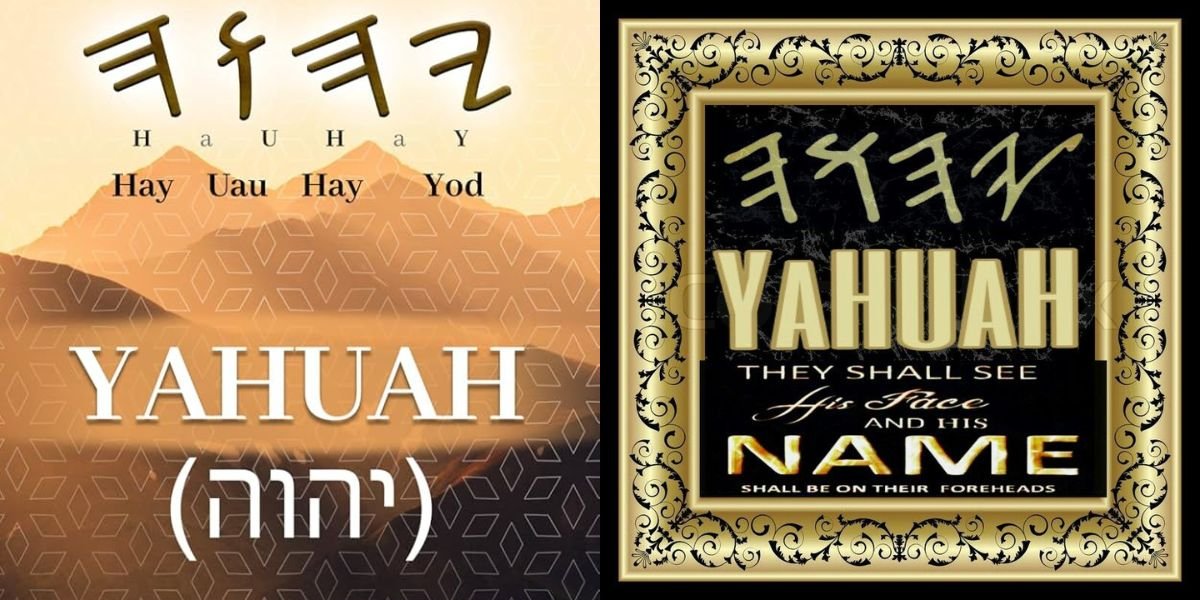The name “Yahuah” has gained significant attention in recent years, particularly in discussions related to theology, spirituality, and historical linguistics. This name is believed by many to be a form of the divine name of God, often associated with Yahweh or Jehovah in traditional Christian and Jewish contexts. As interest in the study of ancient texts and languages has grown, so too has the debate about the correct pronunciation and meaning of the sacred name.
In this article, we’ll explore the significance of Yahuah, its origins, and how it fits into religious and historical contexts. We will also address the controversies surrounding its use and offer an insightful comparison to other variations of the name of God. This comprehensive guide will aim to clarify key aspects of Yahuah while considering the perspectives of scholars, religious groups, and linguistic experts.
The Meaning and Significance of Yahuah
The name Yahuah is considered by many to be a more accurate transliteration of the Tetragrammaton, the four Hebrew letters (YHWH) that represent the name of God in the Hebrew Bible. For centuries, scholars and religious leaders have debated the correct pronunciation and rendering of these letters. While most commonly recognized as “Yahweh” or “Jehovah,” the name Yahuah has emerged as a proposed alternative, rooted in specific interpretations of ancient Hebrew and Aramaic texts.
The meaning of Yahuah is traditionally understood to be “I Am That I Am” or “I Am Who I Am,” a phrase that originates from the book of Exodus (3:14), where God reveals Himself to Moses from the burning bush. This statement of divine self-existence and eternal presence reflects the profound theological concept of God’s nature—unchanging, self-sufficient, and beyond human comprehension.
Yahuah and its Connection to Ancient Texts
The name Yahuah is primarily linked to the Hebrew scriptures and the Old Testament of the Bible. It appears in the original Hebrew text in the form of YHWH, which was regarded as too sacred to be spoken aloud by many Jewish communities. Instead, alternative titles such as Adonai (Lord) or Hashem (The Name) were used in place of YHWH.
Throughout history, various attempts have been made to vocalize the divine name, but these attempts have varied widely, depending on linguistic and cultural context. While “Yahweh” and “Jehovah” have been widely used, Yahuah is gaining popularity in some circles, especially among those advocating for a return to what they perceive as a more original and accurate representation of God’s name.
Historical Debate on the Pronunciation of YHWH
The pronunciation of YHWH has been a subject of intense debate among scholars, religious groups, and linguists. Ancient Hebrew did not include vowels, which means the exact vocalization of many words, including the name of God, was not originally recorded. Over time, vowel points were added to Hebrew texts, but the pronunciation of YHWH remained unclear.
Many traditional Christian and Jewish scholars have supported the pronunciation “Yahweh,” based on linguistic research and ancient sources. However, others argue that this interpretation is based on assumptions rather than concrete evidence. The name Yahuah, with its specific vowel sounds, is proposed as a potentially more accurate reconstruction, based on certain linguistic and textual analyses.
Yahuah in Modern Religious Movements
The resurgence of the name Yahuah can be seen in certain modern religious movements, particularly among some Hebrew roots and Messianic groups. These communities emphasize the importance of using the original name of God as a means of restoring biblical authenticity and deepening their connection to the divine.
For these groups, the name Yahuah holds a special significance, not only as a historical or linguistic curiosity but also as a spiritual and doctrinal issue. Adherents believe that using Yahuah represents a return to the true, unaltered form of God’s name, and that it is essential for both personal faith and collective worship.
The Controversy Surrounding Yahuah
As with any topic that touches on sacred or theological matters, the name Yahuah is not without controversy. There are differing opinions about its use, some of which are theological in nature, while others focus on historical accuracy and linguistic correctness.
Theological Concerns
One of the major concerns surrounding the use of Yahuah is its perceived divergence from established Christian and Jewish traditions. Many Christian denominations continue to use the term “God” or “Lord” to refer to the divine, while Jews traditionally avoid speaking or writing the name of God at all. For these groups, the introduction of Yahuah represents an unnecessary departure from centuries-old practices.
However, advocates for the use of Yahuah argue that restoring the original name of God is important for a deeper understanding of Scripture and a more authentic expression of faith. For them, using Yahuah fosters a sense of closeness to the divine and aligns their worship practices more closely with ancient biblical traditions.
Linguistic and Historical Issues
From a linguistic perspective, the use of Yahuah is also subject to scrutiny. Critics argue that there is insufficient evidence to support this particular form of the name, and that it may be based on incomplete or speculative interpretations of ancient Hebrew texts. The argument against Yahuah centers on the uncertainty of how YHWH was actually pronounced, given the lack of vowel markings in ancient Hebrew.
Additionally, scholars have noted that the name Yahuah appears to be a relatively modern construct, gaining prominence in the 20th and 21st centuries. This raises questions about its historical legitimacy and whether it accurately reflects the intentions of ancient biblical authors.
Yahuah vs. Yahweh: A Comparison
To further clarify the nuances surrounding the name Yahuah, let’s compare it with the more widely known version, Yahweh. While both names are derived from the same Tetragrammaton (YHWH), they reflect different interpretations of ancient texts and linguistic principles. Below is a comparison chart to highlight the key distinctions between these two names.
| Aspect | Yahuah | Yahweh |
| Origin | Proposed as a more accurate pronunciation of YHWH. Popular in some Hebrew roots movements. | Widely accepted as the traditional pronunciation based on linguistic evidence. |
| Pronunciation | Yah-oo-ah, with specific vowel sounds based on Hebrew roots. | Yah-way, following scholarly consensus of ancient vocalization. |
| Historical Use | Gaining popularity in modern religious movements, particularly among Messianic groups. | Used for centuries in Christian and Jewish traditions. |
| Linguistic Basis | Based on the interpretation of ancient Hebrew texts and the inclusion of certain vowel sounds. | Derived from scholarly interpretations of early Greek and Latin texts. |
| Theological Implication | Emphasized by some groups as a return to the “true” name of God. | Generally accepted by mainstream religious communities as the correct form. |
| Scriptural References | Appears in certain translations and modern religious texts. | Appears in most modern translations of the Bible. |
Yahuah in Context
Understanding the name Yahuah requires looking at its significance within the broader context of biblical theology and history. As a representation of the divine name, Yahuah evokes deep reverence and emphasizes God’s eternal and self-existent nature. While its usage is still debated, it serves as a powerful reminder of the importance of language and tradition in religious practice.
Despite the controversies, the discussion surrounding Yahuah brings attention to the need for ongoing exploration and examination of sacred texts. Whether you choose to adopt Yahuah or stick with other versions of the name, the central theme remains the same: the search for a deeper connection with the Creator and the understanding of His nature.
Conclusion
The name Yahuah represents an ongoing dialogue between historical linguistics, theology, and modern religious movements. It highlights the importance of returning to original sources and critically engaging with both ancient texts and contemporary beliefs. As we continue to study and interpret the scriptures, it is crucial to respect the diversity of perspectives on God’s name while seeking a deeper understanding of the divine.
Ultimately, the name Yahuah—whether embraced or contested—serves as a symbol of the broader quest for truth and spiritual connection. Whether used in prayer, study, or worship, the name carries with it a profound meaning that transcends linguistic barriers and calls believers to explore the fullness of God’s eternal identity.











